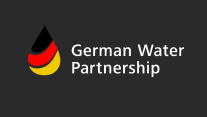Toolbox
Consultation & Cooperation
Selecting the right approach for your engagement process
Depending on the issues, the initiators and the purpose, Stakeholder Dialogues can be implemented in different forms. If consultation is at the forefront, once-off stakeholder workshops or a sequence of stakeholder workshops can integrate different viewpoints into planning or decision-making. If collaboration and joint implementation is at the forefront, regular stakeholder meetings become part of an overall strategy for implementation and cooperation.
One can distinguish broadly between two underlying purposes of Stakeholder Dialogues:
- Stakeholder Dialogues that are geared towards consultation: the structured integration of viewpoints and interests from different stakeholders; and
- Stakeholder Dialogues that have a stronger focus on cooperation and implementation: the collaboration of different stakeholders to achieve a jointly agreed goal.
In consultative Stakeholder Dialogues, the role of stakeholders is to contribute their expertise, their viewpoints and their experiences. What happens with the input or with recommendations is the responsibility of the leading stakeholder initiator. In cooperative Stakeholder Dialogues, stakeholders are often more active in the joint steering of an implementation process. With a strong focus on implementation, the commitment to collaborate and to take joint responsibility for outcomes and success increases. Stakeholders move from being observers to being active in achieving results.
This continuum is presented in the Stakeholder Dialogues graphic, below. Use it, the overview table and case studies of Stakeholder Dialogues in the water sector to select the right approach for your engagement process.
| Form | Feature | Purpose | Recommended for |
|---|---|---|---|
| Singular Stakeholder Consultation | Stakeholder event (from information to authentic consultation) | To raise stakeholders’ interest in or awareness of a particular issue To get feedback from different stakeholders about a specific issue |
|
| Sequences of Regular Stakeholder Consultation | Consultative Stakeholder events leading to a specific outcome | To let stakeholders participate in a development or decision-making process, or to exchange experiences among stakeholders |
|
| Institutionalized Stakeholder Consultation | Government-led stakeholder consultation embedded in regulations | To regulate input by stakeholders on certain issues of policy or planning development (as part of good governance) |
|
| Stakeholder Platform (Exchange) | Regular coming together of different stakeholders for an exchange of experience | To develop joint recommendations, to use the opportunity to meet different stakeholders, to ensure advocacy for stakeholder interests |
|
| Form | Feature | Purpose | Recommended for |
|---|---|---|---|
| Stakeholder Initiative | Cross-sector initiative to solve complex problems, to develop joint policy and/or sustainability standards or to achieve agreed-upon implementation objectives | To develop and implement new approach, voluntary standards, new policy, complex project jointly | Complex project management through
|
| Stakeholder Platform (Implementation) | Joint management of implementation regarding an issue of common concern | To ensure joint management of complex tasks by different stakeholders |
|
| Stakeholder Partnership | Cross-sector implementation project to achieve agreed-upon objectives | To achieve specific project results with complementary resources in specific timeframe | Collaborative implementation projects and strategic alliances requiring:
|





